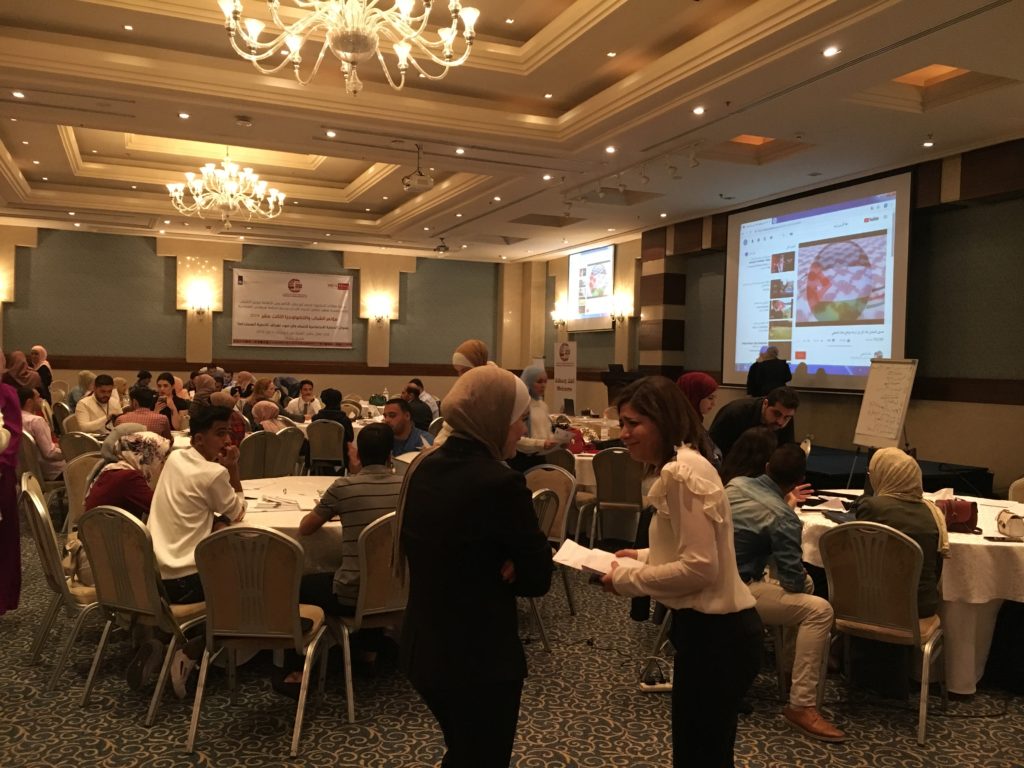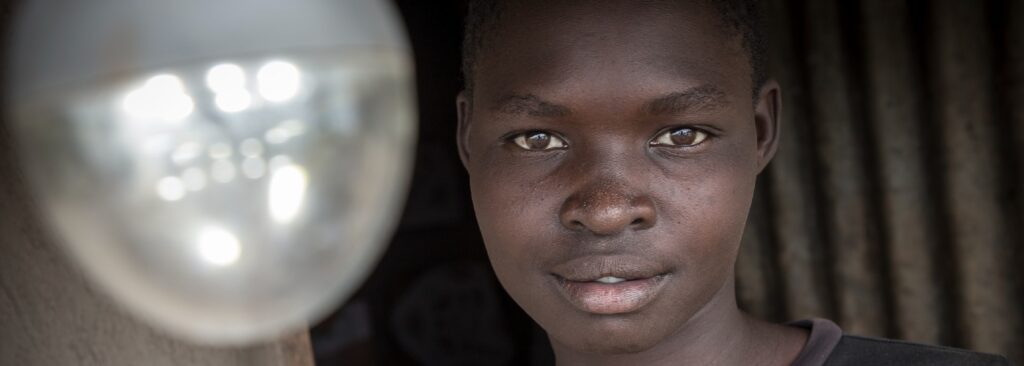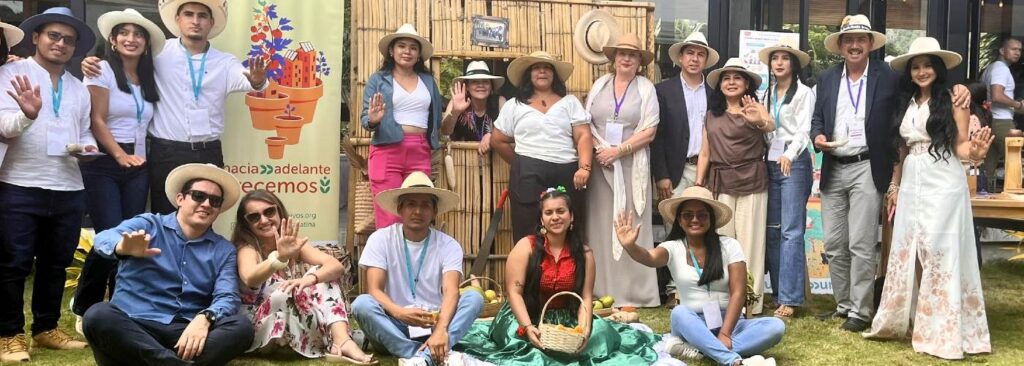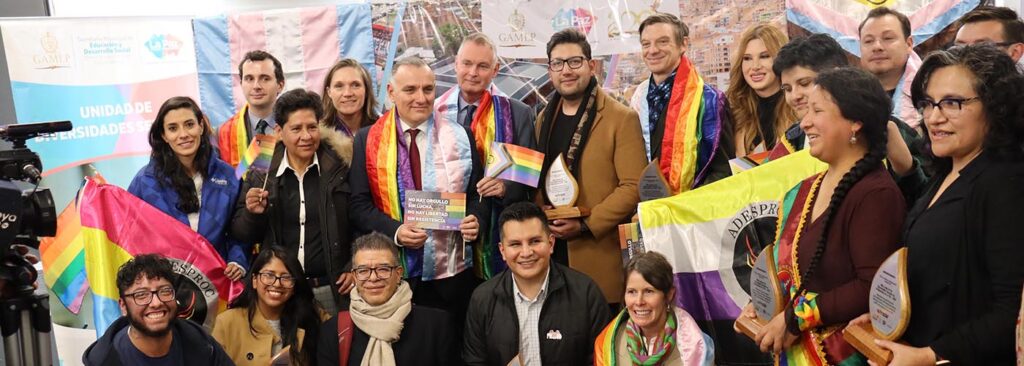id=”632″ id=”post-1933″ class=”wp-post-content-block ” itemscope itemtype=”http://schema.org/BlogPosting” itemprop=”blogPost”>
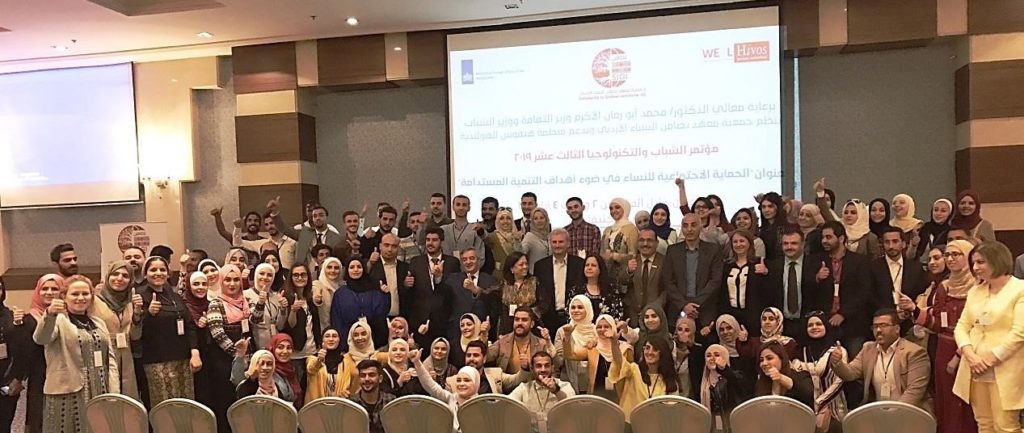
SIGI 13th Youth and Technology Conference Promotes Social Protection for Women
By: Shara Jazzar
Each event can become an opportunity to further support women’s rights and their protection. In that context, SIGI organized its 13th Youth and Technology Conference in partnership with Hivos and the support of the Dutch MFA, gathering 110 youth – both males and females – from all of Jordan’s governorates in order to discuss social protection for women in light of the sustainable development goals as well as build the capacities of the participants in using information and communications technology (ICT) to support the economic and social rights of women in the Kingdom.
Involvement of the youth in gender issues
The main objective of the Conference was to promote youth involvement in gender issues and teach them how to actively take part in improving the situation of females in their country through developing their own projects that aim at providing protection for Jordanian women through the use of ICT.
Therefore, during the first of those three days, participants were introduced to different concepts through papers prepared by a series of experts on gender and social protection in order to have a better understanding of the subject. During the second day, the youth started working on their projects, divided into 10 groups of 10 participants each and under the supervision of facilitators. On the third and final day of the Conference, each team presented its project in front of a jury composed of experts in various fields.
Youth projects on gender protection
When talking protection, there is definitely a need for mobile applications that protect against violence against women. This is what the winning project ‘Jaddoole’ worked on. The application they exposed provides a safe space for females to shares their stories and seek advice and support. Moreover, it offers information on the topic and guidance on how a woman can protect herself. It also organizes media campaigns to raise awareness on the matter. Such application can be a live-savior as many women are unable to seek help because they are either afraid or feel shameful. Moreover, they might not know what to do or who to turn to.
In that context, ‘Rehope’, which won the second position, addressed an interesting yet not widely known topic; that of furniture and appliances a woman buys with her husband, but to which she is not entitled in case of his death or divorce. The project proposes the creation of an application, in cooperation with the Ministry of Justice, through which these females can scan the barcode of the item they bought and include it as their property under their national identity number. This idea is both interesting and very practical because the money a woman has paid to purchase something for her home will not be in vain. Instead, she will be able to claim what is hers in case of divorce or death of her husband and not lose everything and have to start all over.
In parallel, ‘Abshari’, winner of the third position, focused on an important component of society that is often forgotten – people with special needs. The team proposed the creation of a website in order to raise awareness on the discrimination such people face despite the fact that by law, they should be treated as equals on all levels including employment opportunities. Such initiatives are important because most projects in general tend to focus on particular and often repetitive topics, while forgetting that there are other populations in need of support.
Interestingly, despite the fact that the umbrella under which these projects fall is ‘protection’, the youth did not only think about violence against women and included other types of protection as well in their projects, such as economic empowerment and sexual harassment in the workplace, which means that they clearly understood what actually falls under the title.
Lastly, it is undeniable that the new generation is the future. Therefore, the youth must be introduced to the concepts of gender and protection at school. This will enable them to change their perception on that matter starting from childhood and allow both males and females to work hand in hand towards changing old customs and the culture of shame, unfair legislation that discriminate against women on so many levels and build a generation that despises gender based violence and castigates its perpetrators. Moreover, they will become motivated to use their education and resources for that cause. During this Conference, the youth clearly showed their engagement and enthusiasm, as well as their ability and willingness to use their knowledge and capacity in making our society a safer and more equal place for women and people with special needs through their creative and practical projects that we hope would actually find sponsors in order to be implemented.


